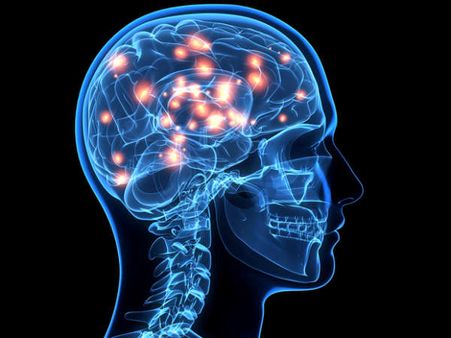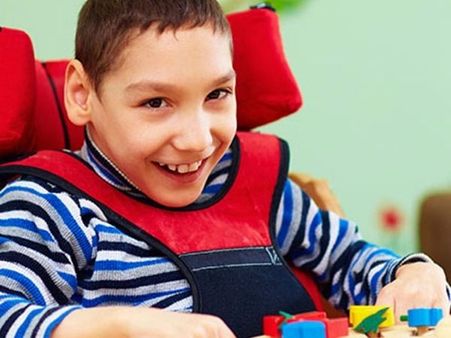Just In
- 16 hrs ago

- 17 hrs ago

- 20 hrs ago

- 20 hrs ago

Don't Miss
- Movies
 Pavi Caretaker Box Office Collection Day 1 Prediction: Dileep's Movie Expected To Open Strongly
Pavi Caretaker Box Office Collection Day 1 Prediction: Dileep's Movie Expected To Open Strongly - Sports
 Who Won Yesterday's IPL Match 41? SRH vs RCB, IPL 2024 on April 25: Royal Challengers Bangalore End Losing Streak
Who Won Yesterday's IPL Match 41? SRH vs RCB, IPL 2024 on April 25: Royal Challengers Bangalore End Losing Streak - Finance
 Bajaj Group Stock Declares Rs. 60/Share Dividend: Buy Ahead of Record Date On 28 June?
Bajaj Group Stock Declares Rs. 60/Share Dividend: Buy Ahead of Record Date On 28 June? - News
 MEA Dismisses US Human Rights Report On Manipur As 'Biased And Misinformed'
MEA Dismisses US Human Rights Report On Manipur As 'Biased And Misinformed' - Automobiles
 Royal Enfield Unveils Revolutionary Rentals & Tours Service: Check Out All Details Here
Royal Enfield Unveils Revolutionary Rentals & Tours Service: Check Out All Details Here - Technology
 Elon Musk’s X Is Launching a TV App Similar to YouTube for Watching Videos
Elon Musk’s X Is Launching a TV App Similar to YouTube for Watching Videos - Education
 AICTE introduces career portal for 3 million students, offering fully-sponsored trip to Silicon Valley
AICTE introduces career portal for 3 million students, offering fully-sponsored trip to Silicon Valley - Travel
 Escape to Kalimpong, Gangtok, and Darjeeling with IRCTC's Tour Package; Check Itinerary
Escape to Kalimpong, Gangtok, and Darjeeling with IRCTC's Tour Package; Check Itinerary
Common Myths And Facts About Autism You Need To Know
Autism, also called autism spectrum disorder (ASD),is a group of neurodevelopmental disorders characterised by impairment in communication, social skills and restrictive repetitive behaviours and interests. As per the World Health Organization (WHO), 1 in 160 children has an autism spectrum disorder. However, the figures may vary as the incidences of autism in many low-income and middle-income countries are so far not known [1].

Autism can occur in childhood during the first five years of life. The signs and symptoms of autism start during early childhood and can persist till adulthood. Children or adults with autism experience communication problems, difficulty in developing and maintaining relationships, issues with non-verbal communication, repetitive movements or speech and repetition of words said to them.
Many people aren't aware about autism and this brings a lot of misconceptions about individuals with ASD. It is important to have accurate information and awareness about ASD, so we've listed down the common myths and facts about autism. Take a look.

1. Myth: Autism is a mental health disorder
Fact: Autism is a neurodevelopmental disorder. The term neurodevelopmental means the disorder is related to the development of the nervous system. Studies have shown that people with ASD have abnormalities in the brain structure and function [2].Autistic people have problems with thinking, communication and the ability to relate to others. Individuals diagnosed with ASD often have other psychiatric disorders like anxiety, mood alterations and attention deficit and hyperactivity disorder (ADHD) etc., but autism is not a mental health disorder [3].

2. Myth: All autistic people are alike
Fact: Autism is a group of developmental disabilities that affect communication, social and behavioural abilities, which are called spectrum disorders. This means that they affect every autistic person in a different way which makes autistic people different from one another. The symptoms may differ among individuals and may range from mild to severe.


3. Myth: Autism is caused by poor parenting and vaccines
Fact: Researchers don't know the exact cause of autism. But poor parenting and vaccines aren't definitely the cause of autism. There is no evidence to support that childhood vaccination and poor parenting lead to the development of autism [4].

4. Myth: People with autism don’t have feelings
Fact: There is a misconception about autistic people that they cannot feel or express love or empathy. Studies have shown that most autistic people are capable of feeling or expressing love or empathy. Some people may show their feelings in less obvious ways, but it doesn't mean that they can't feel or express love or empathy [5].

5. Myth: People with autism have savant abilities
Fact: It is true that autistic people have savant abilities, which means they display remarkable abilities or skills in one or more areas such as memory, art, music, mathematical calculation and computer ability. However, only 1 in 10 autistic people have such remarkable abilities and majority of them have ordinary skill sets [6].

6. Myth: Autistic people are violent
Fact: Children with ASD may react aggressively out of frustration when they find it difficult to communicate with others, but it's unusual for autistic individuals to act violently out of malice or pose any danger to the society. Autistic people may prefer to limit their social interactions with people but they don't harm other people [7].

7. Myth: Autistic people can’t be successful
Fact: Autistic people are often creative and they see the world in a different perspective. People with autism need practical support and help with social communication, so if they are supported by people who believe in their potential, they can achieve success in their area of interest.

8. Myth: Autism can be cured
Fact: There is currently no cure for autism; however, early intensive behavioural therapies can greatly improve a child's development and learning and also reduce ASD symptoms. Many programs address the range of language, behavioural and social difficulties associated with ASD and some of these programs focus on teaching children how to communicate better or act in social situations. This can help children learn social, communication and behavioural skills [8].
Common FAQs
Q. What causes autism?
A. Researchers do not know the exact cause of autism. However, certain risk factors are said to be the cause of autism, and these include genetic mutations, low birth weight, metabolic imbalances and exposure to environmental toxins.
Q. What is an autistic person like?
A. Autistic people may react differently according to their mood. They may find it hard to understand how other people think or feel, get social anxiety over time, find it difficult to communicate and interact with other people and they do the same things repeatedly.
Q. Do autistic people have other conditions?
A. Yes, often people with autism have other conditions like anxiety or depression, attention deficit hyperactivity disorder (ADHD) and epilepsy.
-
 healthWorld Autism Awareness Day 2024 Wishes: Messages, Images, Greetings, Texts, Twitter And WhatsApp Status
healthWorld Autism Awareness Day 2024 Wishes: Messages, Images, Greetings, Texts, Twitter And WhatsApp Status -
 healthExclusive: On World Autism Day 2024, Let Us Empower Parents With Positive Strategies For Autism Care
healthExclusive: On World Autism Day 2024, Let Us Empower Parents With Positive Strategies For Autism Care -
 pregnancy parentingWorld Autism Day: Myths About Austism That Parents Should Steer Clear From, Best Conversation Starting Books
pregnancy parentingWorld Autism Day: Myths About Austism That Parents Should Steer Clear From, Best Conversation Starting Books -
 healthPremam Movie Director’s Instagram Post: Can You Self-Diagnose Autism Spectrum Disorder?
healthPremam Movie Director’s Instagram Post: Can You Self-Diagnose Autism Spectrum Disorder? -
 kidsSigns Of Autism In Children: What To Look Out For
kidsSigns Of Autism In Children: What To Look Out For -
 kidsWhat Is Rett Syndrome, A Disorder Highly Found In Females? Causes, Symptoms And Treatments
kidsWhat Is Rett Syndrome, A Disorder Highly Found In Females? Causes, Symptoms And Treatments -
 disorders cureDo You Twirl Or Pull On Your Hair? It Could Be A Sign Of Anxiety, OCD Or Autism
disorders cureDo You Twirl Or Pull On Your Hair? It Could Be A Sign Of Anxiety, OCD Or Autism -
 wellnessAutistic Pride Day (18 June): Dietary And Sensory Tips To Care For Children With Autism
wellnessAutistic Pride Day (18 June): Dietary And Sensory Tips To Care For Children With Autism -
 disorders cureWorld Autism Awareness Day: What Is High-Functioning Autism? Its Causes And Diagnosis
disorders cureWorld Autism Awareness Day: What Is High-Functioning Autism? Its Causes And Diagnosis -
 disorders cureAutism: Symptoms, Causes, Risk Factors, Diagnosis And Treatment
disorders cureAutism: Symptoms, Causes, Risk Factors, Diagnosis And Treatment -
 disorders cureWorld Autism Awareness Day: Indian Diet Plan For Autism
disorders cureWorld Autism Awareness Day: Indian Diet Plan For Autism -
 wellnessNovel Eye Test May Help Diagnose Autism
wellnessNovel Eye Test May Help Diagnose Autism


 Click it and Unblock the Notifications
Click it and Unblock the Notifications





